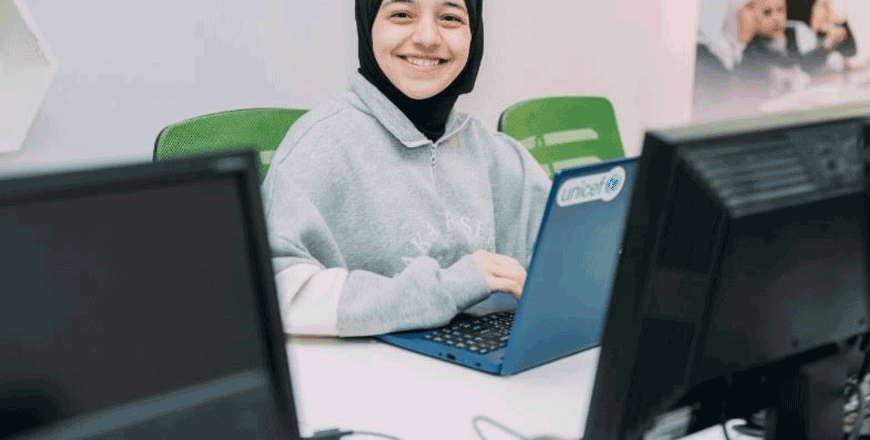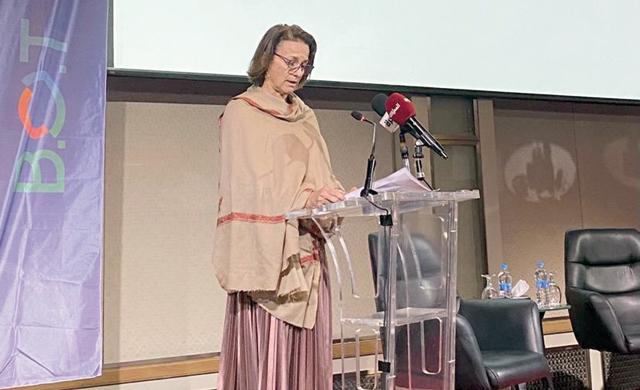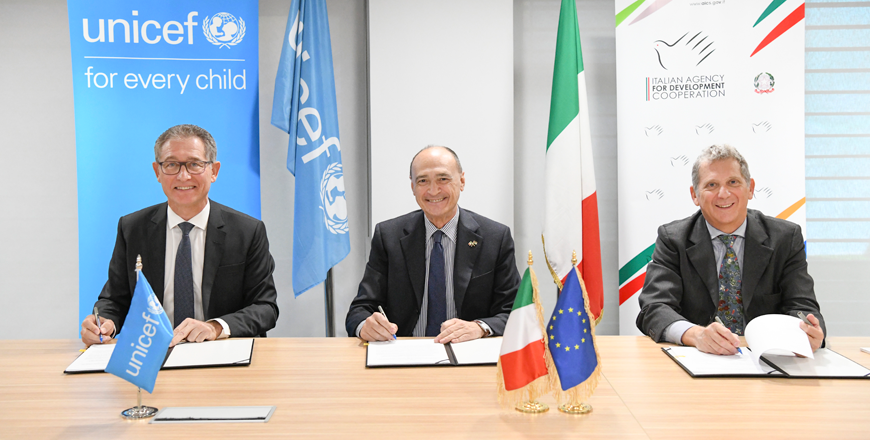You are here
UNICEF, Microsoft launch ‘Learning Passport’ digital youth platform in Jordan
By JT - Jun 10,2020 - Last updated at Jun 10,2020
AMMAN — UNICEF’s Learning Passport, a global digital learning platform that aims to help youth affected by COVID-19 to continue their learning and skills development at home, was launched in Jordan on Wednesday during a virtual event.
The event was attended by the Minister of Digital Economy and Entrepreneurship, the Minister of Youth, Zain Jordan and the UNICEF Jordan Representative, as well as 17 young people from across the country, according to a UNICEF statement shared with The Jordan Times.
As part of its sustainability programme, Zain Jordan has come on board as a strategic partner to support youth through the Learning Passport platform, which is powered by Microsoft.
This is the first version of the global Learning Passport platform to launch in the region and in Arabic.
The platform, which is completely free for young people to access and combines both offline and online components, includes courses in advanced coding and software development, digital literacy, life skills, social entrepreneurship and the English language; with plans to scale up and expand the learning and training opportunities in the future, according to the statement.
“Post-COVID-19, digital empowerment is key across all sectors. Youth are our biggest motivators and online learning really counts on them. Knowledge is power and the Learning Passport is a great opportunity for young people to invest in themselves to succeed, gain knowledge and acquire the skills needed for the labour market,” said Nael Adwan, director of the Investment and Promotion Department at the Ministry of Digital Economy and Entrepreneurship.
“The youth Learning Passport offers a scalable and enhanced solution for youth in Jordan to unleash their potentials by developing the digital and other skills they need for the future of work,” said Tanya Chapuisat, UNICEF Jordan representative.
“The platform also provides a critical bridge to help hard-to-reach and disadvantaged youth access learning and training, ensuring that these young people can beat the heart of Jordan’s post-COVID economic recovery,” she added in the statement.
These types of partnerships between UNICEF and businesses have the potential to make “transformative change” for children and youth, based on a shared value approach where producing social value and addressing challenges is also good for business.
Country Manager for Microsoft Jordan Roula Chehab commented: “At Microsoft, our priority has been to find ways for technology to improve people’s lives and bring the promise of technology to those who are most at risk of being left behind in this era of digital transformation.”
“Through our partnership with UNICEF and the University of Cambridge on the Learning Passport, we are able to rapidly provide a locally-relevant, remote learning solution that ensures continuous access to education for millions of youth,” the country manager was quoted in the statement as saying.
Jordan has one of the world’s youngest populations, with 63 per cent of the population under 30 years of age. However, close to one-third of youth are unemployed. The situation for girls is even more challenging, as Jordan has the third-lowest female labour force participation rate in the world, the statement noted.
The Learning Passport started off as a partnership between UNICEF, Microsoft and the University of Cambridge and its departments Cambridge University Press and Cambridge Assessment. Young people can access the Jordan version by visiting jordan.learningpassport.unicef.org, according to the statement.
Related Articles
AMMAN — On the occasion of International Women’s Day, UNICEF affirmed its commitment to advancing young women’s access to digital learning o
AMMAN — Since 2019, UNICEF’s “Digital Skills for A Better Future” programme has trained more than 3,000 young people, 70 per cent of whom we
AMMAN — The Government of Italy, through the Italian Agency for Development Cooperation, has donated 2 million euros to UNICEF to empower yo


















